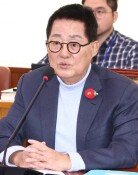Administrative City Problems Continue
Administrative City Problems Continue
Posted December. 20, 2005 08:23,
As local residents and the government are at loggerheads with each other over the level of compensation money for land on which the administrative city will be built, the administrative city project is expected to be delayed yet again.
Local residents are objecting to the governments compensation plan, threatening that they will refuse to cooperate on all projects related to the administrative city. They say, It simply does not make sense that the government will provide us with compensation money that is barely enough to buy one pyeong for every two to three pyeong of our own land that we give up.
However, the government said, A reassessment of the land price is unthinkable because appraisers have worked on it for a year and the government decided on it after 19 meetings with local residents.
Reassess the Price Versus The Land Is Appropriately Priced-
The local residents reaction to the compensation money offered by the government is that the land is priced absurdly low.
Lee Wan-su (63), a village headman (Jongchon 2 Lee, Nam-myun, Yeongi-kun, South Chungcheong Province), said, We did all we could within our power to cooperate with the government and the Korea Land Corporation. But we feel a grave sense of betrayal after seeing the land appraisal values offered by the government.
Local residents say that after the plan for the administrative city was announced, land prices in the region soared by two to three times, even though the government tightened regulations on the neighboring region to prevent land prices from rising. They argue that the level of compensation money offered by the government does not reflect this land price rise.
Local residents are also registering complaints over the fact that the government has failed to present satisfactory plans to compensate for livestock farms that will shut down, and that it has failed to secure land for their relocation.
From 10 p.m. on December 18 through 11:00 a.m. on December 19, about 70 local residents occupied the building of the Korea Land Corporations department in charge of the administrative city, in Jeonmin-dong, Yuseong-gu, Daejeon, and held a demonstration there.
Yim Baek-su, the vice chairman of the commission for compensation, said, The government and the Land Corporation set a compensation price that was too low. Moreover, they are virtually rejecting the compensation plan that was already agreed on, adding, If the government does not accept what we require, we will not cooperate on projects related to the administrative city.
The government says, The government will continue negotiations in order to minimize local residents dissatisfaction. However, it is impossible in reality to reassess the compensation price.
4.6 Trillion Won Versus 3.4 Trillion Won -
Another reason why local residents feel dissatisfied is that there is a big gap between the total amount set aside for compensation and the amount offered by the government at the initial stage of the project.
The Korea Land Corporation, the builder of the administrative city, said on December 19 that 3.4106 trillion won in total has been set aside for first phase compensation. The government expects that if compensation for 15,000 graves and goodwill, which will be compensated for later on, is added to the sum, the total compensation will be about four trillion won.
This is 600 billion to 1.2 trillion won less than 4.6 trillion won, the amount the government thought it would pay out originally.
The governments explanation is that there is a gap because we estimated the total amount of compensation at 4.6 trillion won based on land prices in Nonsan of South Chungcheong Province, the place where land prices were the highest among candidate venues, when the final candidate city was not decided yet.
Less land than estimated will be compensated for.
At the early stage of the project, the government estimated that it would compensate landowners for 23 million pyeong. However, the area of land designated for the administrative city later on became 22.12 million pyeong, and this was reduced in the first phase of compensation to only 16.59 million pyeong, meaning that barely 70 percent of the 22.12 million pyeong budgeted for, will be covered.
The rest is state-owned land (5.11 million pyeong) and land that is subject to second phase compensation (420,000 pyeong) because of discrepancies between the land register (a document that shows the ownership and size of land parcels) and the actual result of land surveys.
Another explanation for why the total amount of compensation is smaller than expected is that farmland and forest, which are relatively cheap, account for 75 percent of the land subject to compensation. The average compensation price per pyeong of land to be compensated now is 187,000 won, lower than 200,000 won price that was estimated back in 2003.
Jae-Seong Hwang jsonhng@donga.com mhjee@donga.com







